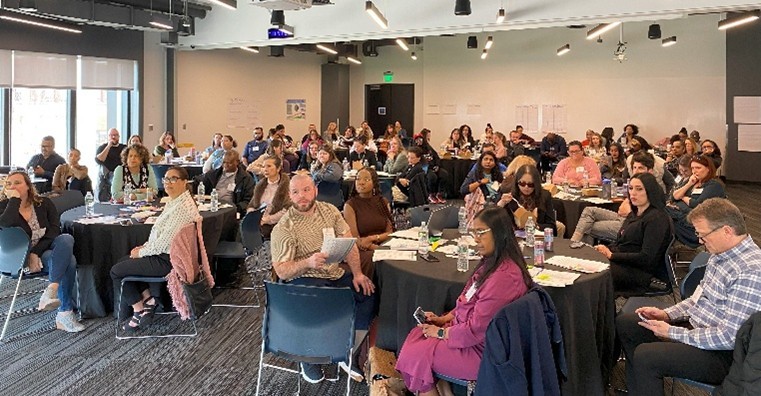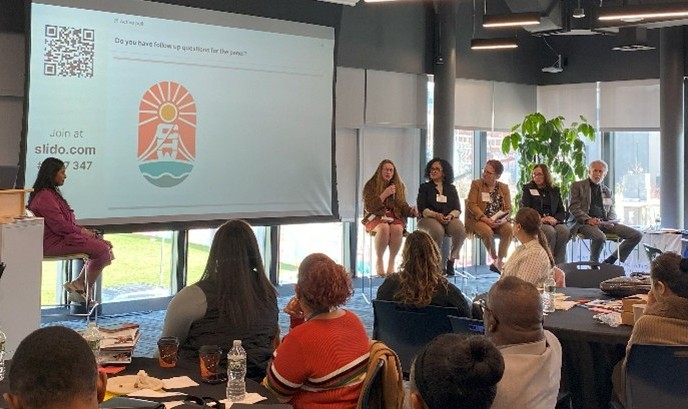Celebrating the Growth and Impact of RI’s Community Health Worker Workforce
 Rhode Island continues to strengthen its Community Health Worker (CHW) workforce thanks to strategic funding and collaborative partnerships. As the CDC’s COVID Response and Resilience Communities (DP21-2109) grant cycle concludes, stakeholders gathered to reflect on the progress and lasting impact of this initiative.
Rhode Island continues to strengthen its Community Health Worker (CHW) workforce thanks to strategic funding and collaborative partnerships. As the CDC’s COVID Response and Resilience Communities (DP21-2109) grant cycle concludes, stakeholders gathered to reflect on the progress and lasting impact of this initiative.
In April, over 75 people gathered as part of the CHW Strategy Team for the final biannual Summit under the Centers for Disease Control and Prevention (CDC) funding for Community Health Worker for COVID Response and Resilience Communities (DP21-2109). The funding that Rhode Island Department of Health received promoted the strengthening and sustainability of the CHW workforce. CTC-RI has facilitated this work by providing project management and training support. Linda Cabral, CTC-RI Senior Program Manager, has been involved with this project since its inception.
1. What changes have you seen to the CHW workforce since the start of the Centers for Disease Control and Prevention (CDC) funding for Community Health Worker for COVID Response and Resilience Communities (DP21-2109)?
Over the last 4 years of funding, we have seen the CHW workforce grow in number and impact. This grant provided funding for many clinical and community-based organizations to hire CHWs and incorporate them into their operations. The introduction of Medicaid and Medicare billing pathways for CHW services created opportunities for organizations to bill for CHW services and aided with sustainability. The CHW workforce is advocating for themselves in new ways and their voice is now at many more policy tables.
 2. What has been CHWs impact within primary care?
2. What has been CHWs impact within primary care?
There is amble evidence about the impact of CHWs on effectively addressing health related social needs and positively impacting health outcomes. When CHWs are incorporated into primary care teams, they can provide education, outreach and support in unique and effective ways. CHWs must be considered part of the fabric of comprehensive team-based care. Once CHWs are part of care teams, it’s impossible to imagine caring for patients without them.
3. As CHWs become an important extension of our work in primary care to better support patients and our communities, how can we continue to support and strengthen the CHW workforce?
Sustainable funding for CHW roles is essential. Billing can only be part of the solution and a comprehensive funding strategy including grants and value-based care models is necessary. CHWs must be allowed to connect with other CHWs for mutual learning and networking. Multiple professional development opportunities exist for CHWs and being able to take advantage of those will only strengthen the CHW workforce in RI.
